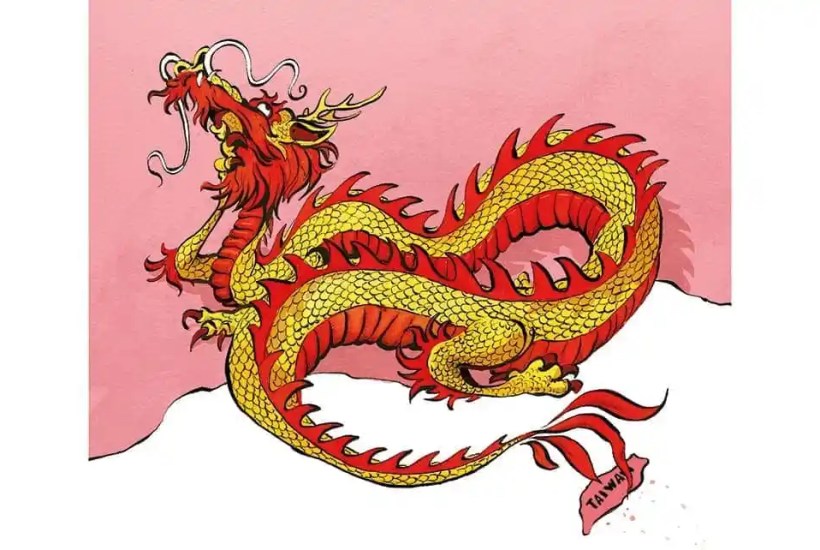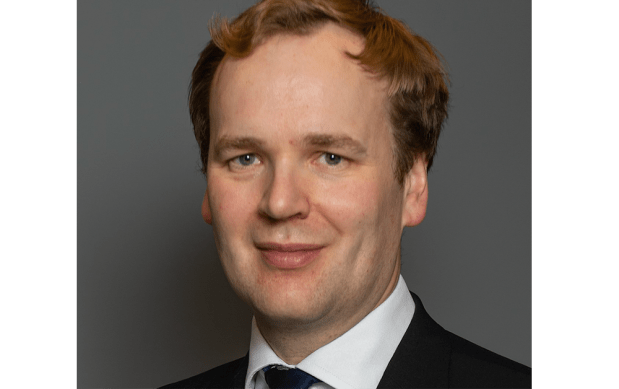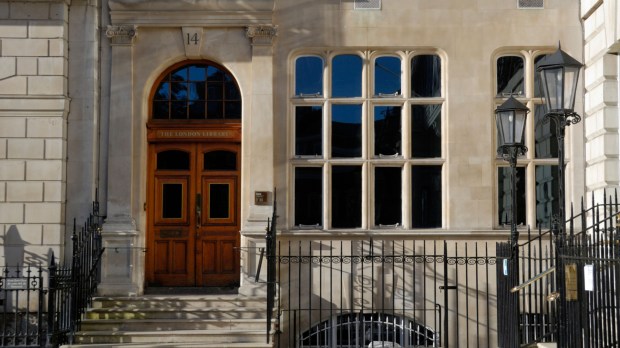Taipei
I arrive here shortly after Taiwan National Day, which is 10 October. The day might seem strangely chosen, because the date commemorates the Wuhan Uprising in 1911, the spark for the revolution which overthrew China’s last imperial dynasty and created the Republic of China. At that time, the island of Taiwan did not benefit. It had been ruled since 1895 by Japan and continued thus until Japan’s surrender in 1945. The reason 10 October is the National Day is because the ‘nation’ referred to is the whole of China, not Taiwan. When Chiang Kai-Shek, the Kuo Min Tang (KMT) generalissimo, was defeated by the communist revolution in 1949, he fled to Taiwan. He ruled Taiwan, but laid claim to the entire Republic of China (ROC) – the mainland plus Taiwan – and repudiated Chairman Mao’s People’s Republic of China (PRC). In formal terms, and despite the loss of diplomatic status after the United States switched horses and recognised communist China in 1979, Taiwan is still the ROC, still laying claim to the mainland. The PRC still lays claim to Taiwan. So Taiwan has never been formally recognised as a nation by either claimant. Beijing hates its regime and wants to ‘reunify’ island and mainland. The KMT hates the Chinese Communist party, but also dreams of China reunified.
This ambiguity has always been dangerous and currently threatens world peace, but when you get to the place itself, you find it in good working order. Modern Taiwan is a prosperous, democratic, innovative, low-crime and cheerful place in which people tell you directly what they think in a way which challenges the stereotype of the Oriental mind. After three quarters of a century, it has perfected the art of the impossible. The competing parties at the coming January presidential and parliamentary elections are fierce in their differences, yet seem to have the same goal – to preserve and advance independence in fact though not in name. The phrase ‘the status quo’ is usually disparaging in the West. Here it possesses a magical potency.
The KMT remains the strongest party in local government. Indeed, Chiang Kai-Shek’s youngish great-grandson is the mayor of this city. But the longer Taiwan and mainland are dissevered, the less real becomes the KMT’s chief aspiration. By a paradox, the party which fought communism so fiercely has become the friendliest towards the communist entity. The KMT line is that it alone has the necessary ‘cross-strait’ connections to manage the increasingly uneasy relationship with Beijing. Its critics’ rejoinder is that the KMT has partially corrupt links with the mainland power. The KMT shares with Xi Jinping a belief in ‘One China’. The two differ about who should run it. The writer and former culture minister Lung Ying-tai tells me that a ‘unified China’ has been the ‘norm ideology’ for 3,000 years. ‘It’s so deep-rooted, it’s tribal. While most Taiwanese have moved away from this ideology, the Chinese are still used to it.’ She thinks this boat should not be rocked.
The currently ruling DPP sees things differently. Its doctrine is that Taiwan should be independent. More and more Taiwanese people see their country as a full nation. DPP supporters have the economic and cultural confidence to promote a Taiwanese identity. But because they fear Xi’s wrath, their policy is not markedly different from that of the KMT. Independence is already the reality, they say, so there is no need to provoke Chinese fury by formally declaring it.
The most amusing of the politicians is the leader of the third party, the TPP. Dr Ko Wen-Je is a famous former surgeon, and he loves to deploy medical metaphors about the body politic (‘I’m addressing a cancer’, he tells me). Daringly, to a western ear, he advocates for elites: ‘An elite has to rule the country.’ His elite consists largely of young graduates. They love the fact that he took part in a video with a well-known rapper, where both sing ‘Do the right things. Do things right,’ repeatedly and in English. Dr Ko, too, is cautious. Unification and independence, he says, are both ‘false issues’: the United States will never allow the former and China will never permit the latter. He speaks, rather obscurely, in favour of ‘dynamic’ rather than ‘static’ equilibrium, meaning the status quo run by him.
Chiang Kai-Shek’s vast but impressively simple mausoleum is well worth visiting, but is no longer, in the public mind, a pilgrimage site. The National Palace Museum carries a greater emotional charge. Before he fled the mainland, Chiang contrived to move vast quantities of the state art collection to Taiwan and there – calligraphy, porcelain, paintings, much more – they reside. The collection is so vast that the great majority is hidden in hillside caves beneath the museum. One Taiwanese mother of young children, seriously worried about possible Chinese attack, tells me she wants to live in a gardener’s cottage there, since it is the only place that Xi will definitely not bomb.
Taiwanese manners are delightful because they combine western frankness with Chinese decorum. People bow when they meet, and women smile with downcast eyes as they greet you. In my hotel, even the lavatory is deferential. As you approach it, it raises its seat cover rather as men used to raise their hats. Once used, it flushes without one having to ask it.
Taipei is surprisingly cosmopolitan. I sat next to a glamorous Taiwanese woman at dinner. This year, she has had her first baby and become an MP for the first time. She told me she has hunted with the Limerick and the Warwickshire. I doubt you could find a young British MP who could say the same.
Got something to add? Join the discussion and comment below.
Get 10 issues for just $10
Subscribe to The Spectator Australia today for the next 10 magazine issues, plus full online access, for just $10.
You might disagree with half of it, but you’ll enjoy reading all of it. Try your first month for free, then just $2 a week for the remainder of your first year.















Comments
Don't miss out
Join the conversation with other Spectator Australia readers. Subscribe to leave a comment.
SUBSCRIBEAlready a subscriber? Log in